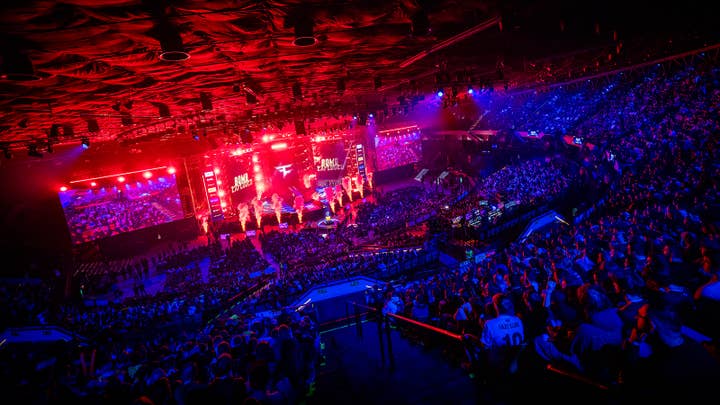'Significantly more' market consolidation expected in esports
Insiders say the competitive gaming market is not out of the woods yet as teams and other organisations brace for further change in the sector
Sign up for the GI Daily here to get the biggest news straight to your inbox
Signs of an esports downturn emerged over a year ago.
Throughout the boom years of the 2010s, investors had pumped millions into team organisations and other entities, dazzled by the bright lights of competitive gaming, the stadiums filled with roaring fans, the professional players with significant followings and the bombastic headlines boasting of million-dollar prize pools.
Older games like League of Legends and Counter-Strike continued to impress, while newcomers like Fortnite, Overwatch and Rocket League only added to the hype at the time.
Brands, businesses and backers bought into that excitement, as the projected growth of the billion-dollar industry proceeded to increase. The top pro players commanded higher salaries, with some earning over $1 million per year, not including their takings from prize money and individual sponsorships.
Not even the pandemic could stop esports' rampant rise, with tournaments going ahead online or in studios with newer safety measures in place. With players stuck indoors, games and hardware sales rose, and some companies expanded, buoyed by the growth.
But after the pandemic lifted, as physical events returned and investors looked forward, it became clear that a return on their investment had failed to materialise. With costly player salaries, an overreliance on sponsorships, and a fanbase reluctant to spend more on an activity that is essentially free to watch and follow, esports teams were woefully unprofitable. Alongside this, publishers had over-hired.
"While there has been consolidation in the esports sector, organisations with strong fundamentals are set to emerge stronger and leaner"
Jasmine Skee, Guild Esports
At the same time, inflation, a cost of living crisis and economic uncertainty lowered expectations.
The esports boom years were over. The gold rush had ended. And what followed was not an easy pill to swallow.
Cutbacks, closures and consolidation hit the industry, and continue to do so now. Some are calling it 'the esports winter'. Major games publishers and companies in the broader games industry also announced layoffs after layoffs, as did businesses in other sectors.
Popular organisation FaZe Clan, once valued at $1 billion, now has a market cap of around $14 million.
Dave Harris of Guinevere Capital, which invested in Excel Esports (now known as GiantX) back in 2018, says: "The switch from a long-term low interest rate environment to a higher interest rate environment has had a major impact on investment allocation away from higher growth/risk assets.
"For esports this has coincided with the end of a standard five-to-seven-year investment cycle, particularly from VCs in North America who ramped up investment in the market round 2017 and 2018. The VC model aims for a hockey stick-shaped growth profile accepting that only two or three in ten will achieve that.
"While there has been growth across many metrics in the industry over that period, some groups bought in on very bullish expectations that weren't reached. The funding tap effectively being turned off in certain areas after an aggressive push for growth has affected VC-backed companies everywhere over the past couple of years — and is certainly not unique to esports. Similarly, when you look at SPACs, a stock market listing instrument that was popular at the peak of the market, most have had their price crash since and the FaZe Clan case in esports certainly isn't an outlier."
Aside from lower investment, Dave Harris says a drop in sponsorship is also affecting teams. Marketing budgets for esports have been slashed, initially due to supply chain issues over the pandemic, and more recently because high end tech sales have skewed towards crypto mining and AI and away from gamers.
There’s been a slow shift towards a lower cost base in esports, which, in turn, has required a shift in expectations from stakeholders across the board.
"To date there has also been market consolidation - and there will likely be significantly more," Dave states.
The British Esports Federation’s senior vice president, Dave Martin, who also has involvement with teams and the investment space, adds: "It's not that teams can't work, but the valuation metric being used is sometimes 30x turnover, but certainly 10 to 20x turnover in a lot of circumstances was excessive when nobody was really making serious money.
"They were getting valued like tech companies were, but tech companies have a product they own, which is the technical architecture, and they have a client base to sell it to. Esports shouldn't be measured on the same metric, because you're not selling a tech company, you're a marketing company for brands and partners."
Many esports staff lost their jobs at publishers Activision Blizzard, Riot Games, Epic Games and tournament organiser ESL FACEIT Group to name a few, due to cost cutting.
Testing times for teams
While this correction carries out, in esports it's also a little different. Competitive gaming is just one small part of the games industry, a billion dollar market in a major $180+ billion industry. Esports is an enigma of sorts, a small (yet sparkly) fish in a giant sea, a promising marketing vehicle for games-as-a-service titles, but a volatile one with a reliance on the work of teams and the support of fans.
But these teams are now in trouble.
100 Thieves cut its workforce, as did fellow esports organisations TSM, Galaxy Racer and others. The likes of the Quake Pro League, Gamebattles and Overwatch League closed. FaZe Clan was acquired by GameSquare; CLG closed and was acquired by NRG; OverActive Media acquired KOI and Movistar Riders. Excel Esports and Giants Gaming merged to form GiantX.
Evil Geniuses and Golden Guardians left the League of Legends Championship Series (LCS) in North America. Stan Kroenke's The Guard esports organisation cut staff and stopped competing. Esports betting companies including Luckbox, Unikrn and Midnite scaled back.
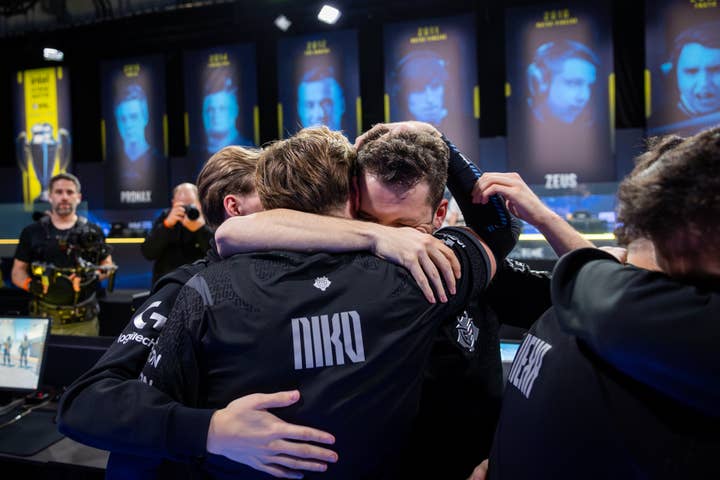
In the UK specifically, we saw the likes of the ESL UK & Ireland Premiership and Promod Esports shut down, and teams like X7, Vexed and MNM Gaming close. The list goes on.
Esports organisations are arguably facing their toughest test yet since the financial crash of 2008, where those who managed to survive emerged as some of the major esports organisations of today, like Fnatic, SK Gaming and Dignitas. And perhaps those who survive this latest storm will emerge stronger.
Some have repositioned themselves as content creation entities, and less traditional esports team organisations, like Misfits.
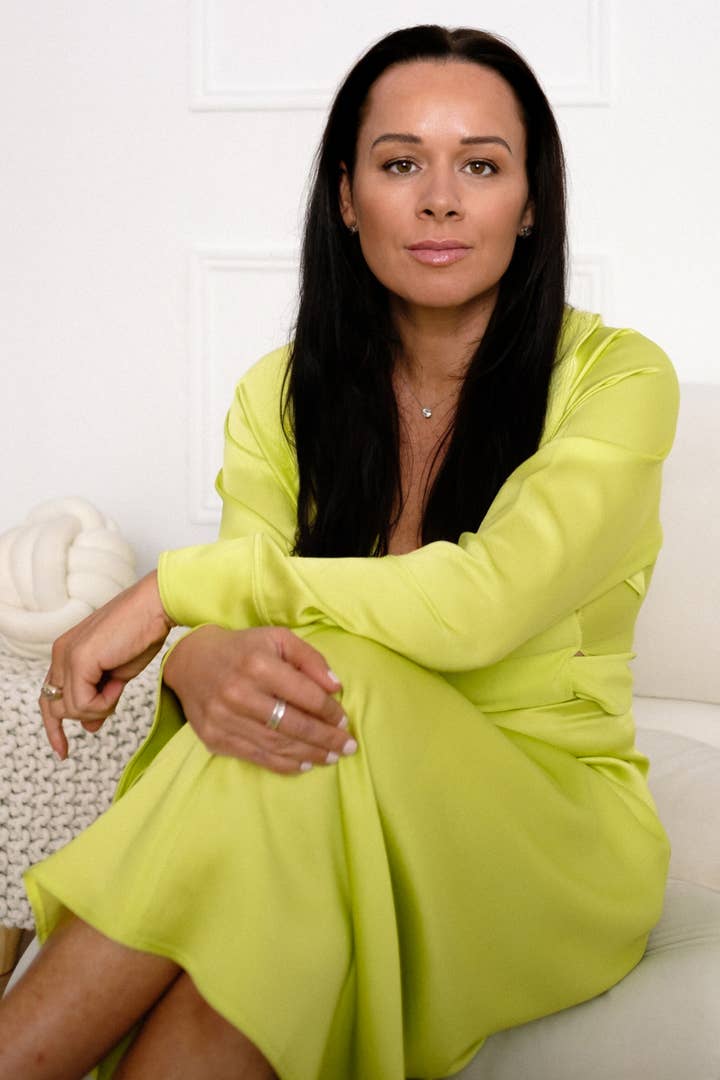
Guild Esports CEO Jasmine Skee tells GamesIndustry.biz: "What we've seen in the last few years – and what we're at the forefront of – is esports teams organisations diversifying their revenues, becoming esports-and-gaming-led entertainment brands. This business model is much more viable than traditional approaches to esports.
"In 2023 Guild transitioned away from a pure-play esports brand towards a wider media and gaming focus, which has positioned the company to better take advantage of the consistent popularity of video games and gaming entertainment. Our business model has evolved. For example, we have launched Guild Studios, our production and creative division, which allows us to focus on activations and events, and effectively leverage our existing Gen Z and Gen Alpha audiences and know-how for brands looking to connect with this hard-to-reach demographic.
"So while there has been consolidation in the esports sector, organisations with strong fundamentals are set to emerge stronger and leaner. And the esports sector is forecast to grow to $1.87 billion by 2028, so while many well-established businesses in the sector have faced pressures, the concept of an 'esports winter' is misleading considering the robust growth and enthusiasm surrounding the esports industry."
Guild is co-owned by David Beckham, and has struck major partnerships with the likes of Sky, Subway, Samsung and more. It's one of several major London-headquartered esports organisations like Fnatic and GiantX.
While some organisations are turning to entertainment, their esports players and influencers continue to be the stars of the show. But there's been a correction in salaries.
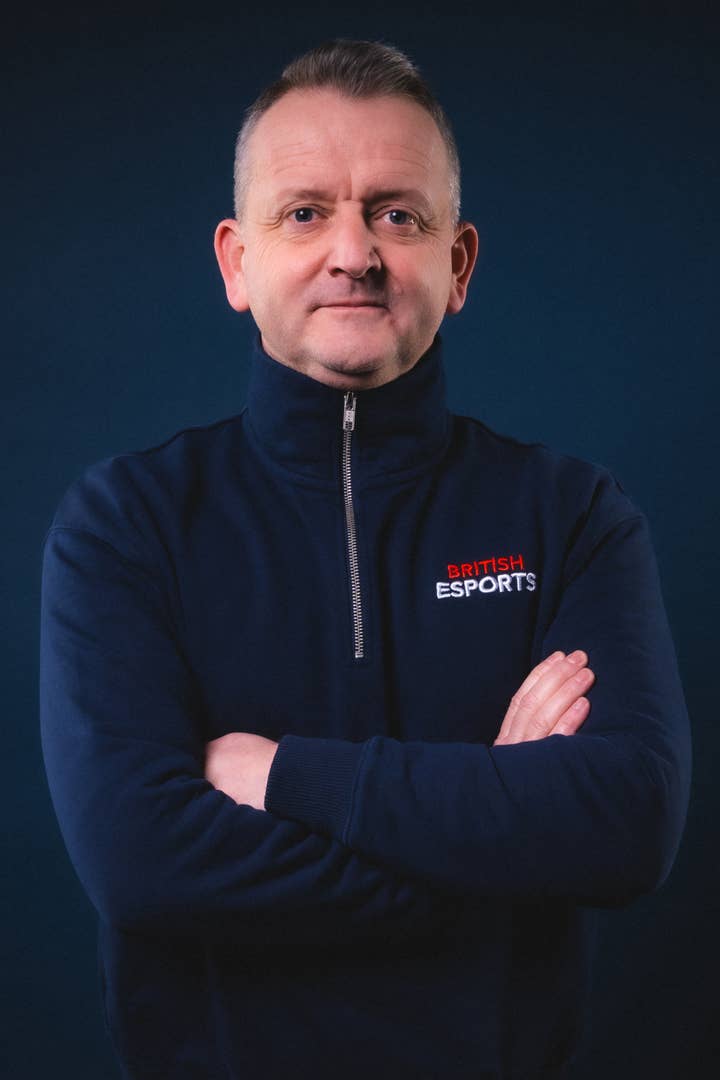
Dave Martin of British Esports says: "We're here because everyone got really excited about this space, without having paused a little bit and thought about how it is as a business model. And in that excitement you get a bit of a gold rush mentality. People just grab an asset and they back it. But those days are gone. If you want to raise money or get sponsorship now, you're going to need good data, a good business plan, a good financial plan and to understand the market and its growth metrics.
"A journey I've seen with [UK-based organisation] Resolve is that player salaries have increased, and the revenue streams have not kept up with that. There hasn't been a decrease in the profit that goes to players, and I think that needs to change. I want to look after our players, but the 90/10 split that players and their organisations take from prize winnings is not sustainable. We're now starting to see changes, such as flexibility in contract lengths and terms."
Salaries in the North American League of Legends LCS have fallen. Some players were earning more than $1 million in 2022, with low six figures more the norm now. Some salary caps were also introduced in League of Legends, in the South Korean LCK and European LEC.
Elsewhere, the volatility of esports showed in different ways. The Rocket League Championship Series (RLCS) saw its prize money drop from $6 million last year to $4.3 million in 2024. The Dota 2 International's prize pool peaked at $40 million in 2021, before halving in 2022 and dropping to just over $3 million last year. While this may be less a result of the market correction and more about lower demand for Valve's in-game Compendium (and thus a lower contribution to the crowdfunded prize pool), it demonstrates the volatility of esports.
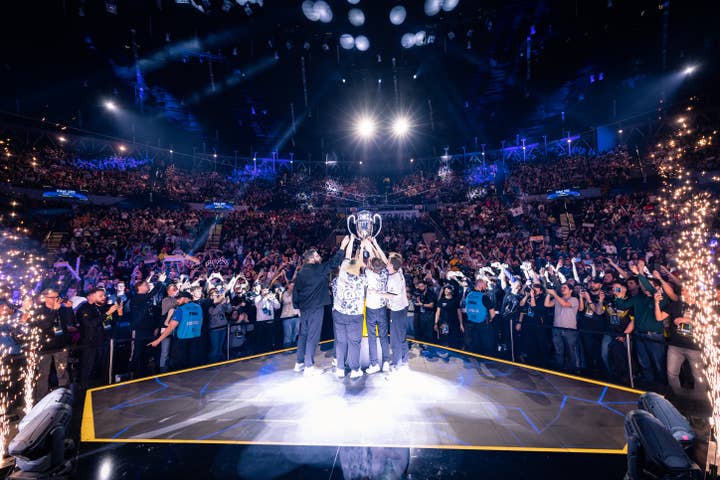
A new dawn
Amidst all these changes and market correction in esports, we've also seen the rise of Saudi Arabia.
In early 2022, it was announced that Savvy Games Group (SGG, owned by Saudi Arabia'sPublic Investment Fund), had acquired two major esports tournament organisers ESL and FACEIT for $1.5 billion, to form ESL FACEIT Group (EFG).
A new Esports World Cup will take place this summer in Riyadh, Saudi Arabia, replacing the Gamers8 series of events and promising tens of million dollars in esports prize pools.
Saudi has also made efforts to bring the separate International Esports Federation (IESF) and Global Esports Federation (GEF) together.
"What esports needs now is to be backed by good investors with sensible expectations managed, not 20x valuations"
Dave Martin, British Esports
Savvy Games Group is part of Saudi Arabia's Vision 2030 strategy to boost its image and make it less dependent on petrochemicals. It has an 8.26% stake in Nintendo, has invested billions of pounds worth of stock in Activision Blizzard, EA and Take-Two, and overall it's pumping some $38 billion into becoming a gaming hub. Saudi also has plans to open a 'giga project' entertainment complex known as Qiddiya, the country's first gaming and esports district.
While some of the business owners in esports are welcome of Saudi's increasing investment in the space, pockets of the esports community remain conflicted about the country's rise in gaming given its human rights record.
"While there is a wide spectrum of opinions on Saudi Arabia itself, people are burying their heads in the sand if they don't acknowledge that it is now a major driver of the esports ecosystem," says Dave Harris of Guinevere Capital. "Many others have invested heavily in esports without shifting the dial and whilst a significantly larger cheque book has been used, it is impressive the strategic position they have managed to build via investments in game publishers, EFG, GEF/IESF and the Esports World Cup, and so on.
"My view on Saudi's Vision 2030 is that it makes complete economic sense for them to diversify the economy away from oil, with esports and gaming one of the 12 pillars focused upon. Looking at another pillar in traditional sports, they have had significant success to date disrupting golf, football and I can see tennis being next, so I don't believe esports will be different."
Guild Esports CEO Jasmine Skee remarks: "Saudi Arabia's vast infrastructure investments in esports teams and tournaments are helping to fuel the growth of the industry. The influence of MENA on esports is immense. Professional players are also very keen to compete, as Saudi Arabia offers the biggest tournaments with the biggest prizes."
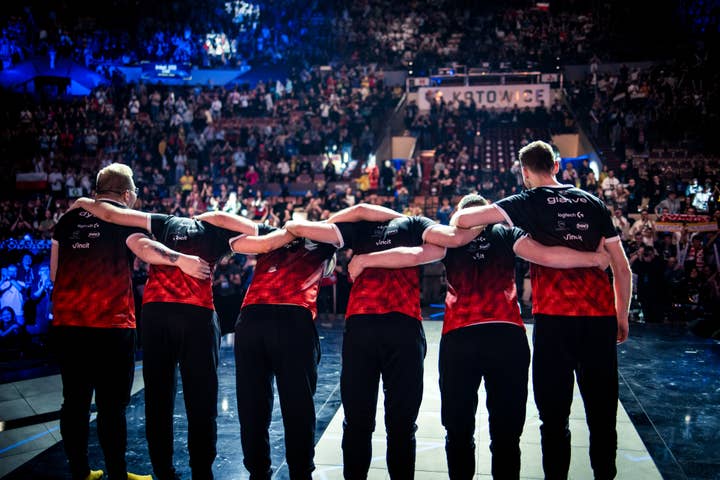
What next?
Through the cutbacks and closures, there is still a sense of optimism for the longer-term picture. Esports is here to stay — it's an exciting marketing vehicle for competitive games — but it's changing.
Robbie Douek, CEO of tournament organiser BLAST, says: "There is no doubt that the industry has been through a period of adaptation over the last 12 months, where we have seen a number of stakeholders and companies depart the space. It's important to keep in mind that esports has not been the only industry facing challenges during this financial landscape.

"There are many reasons to be optimistic. At BLAST, we are feeling bullish on 2024 and what the future holds for esports and the wider gaming market. A clearer focus to data-driven monetisation of esports' large audiences will provide further clear business opportunities. The market will continue to grow and the work and position we occupy within it will become more and more important."
Guild Esports CEO Jasmine Skee also believes it's important to focus on emerging regions, new technologies, and diversity.
"The continued rise of emerging regions in the esports landscape presents significant opportunities for growth and development." she states. "In addition to MENA, Guild is also establishing a big Latin America audience.
"Furthermore, I remain optimistic that there will be continued participation by women in esports as we drive forward initiatives that open doors for female players.
"Looking further ahead, over the next five years, I anticipate the esports industry will further leverage technologies like artificial intelligence (AI) to enhance player experiences, improve gameplay and streamline operations."
Esports came from the community — the LAN parties, the grassroots broadcasts, the mods in games like Half-Life and Warcraft III that led to Counter-Strike and Dota respectively — and it seems it's going full circle.
The community and stakeholders working together, in unity, may bear fruits for esports in the future.
"People overestimate how big esports is going to be in the short term, and underestimate how big it is going to be in the long term"
Dave Harris, Guinevere Capital
Dave Martin of British Esports believes there will be more mergers, more strategic business planning from organisations, more publishers sharing in-game sales revenues with teams, better integration between esports and traditional sports, and more activations in physical premises in the future. To name a few in the UK, there's the Confetti X broadcast facility in Nottingham, London's Copperbox Arena, British Esports' National Esports Performance Campus in Sunderland, nationwide gaming bars, Endpoint's Pracrooms bootcamp location and more.
He says: "People are still interested in esports. What we need to do now in, let's call it esports 3.0, is to find a way for the athletes, the industry, the orgs and the ecosystem in general, to work together. Working together, increasing the interest in esports, increasing the participation of sponsors and brands and governments' involvements.
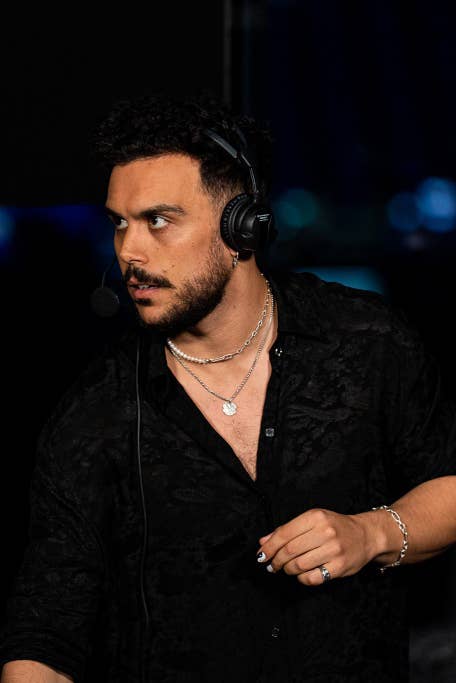
"When I spoke to Adam Jessop of [Sheffield-based esports team organisation] Endpoint, I said, 'You have an amazing team bootcamp facility, Pracrooms, so how can we help promote it?' It doesn't matter that British Esports also has a facility up the road in Sunderland. If people come to the UK and go to Pracrooms, it's a win. It's the rising tide — let's make sure we do that.
"I'm positive about the future. We've got great people in the industry, really experienced people, and what it needs now is to be backed by good investors with sensible expectations managed, not 20x valuations. Then there's an opportunity to think about bigger events and merchandise sales, and more frequently monetising them."
Dave Harris of Guinevere Capital states: "I have said for a very long time and I think it's more pertinent than ever: People overestimate how big esports is going to be in the short term, and underestimate how big it is going to be in the long term.
"There has been a lot of recent pain in the market and it's not going to turn around quickly. With expectations reset to an extent though, I do believe an esports model that effectively harnesses the continued growth of gaming will continue to evolve. A lot of people have exited the scene and my hope is the community can come together and support all those working to build the sector in tough conditions."
Alex 'Machine' Richardson, professional esports commentator, concludes: "Esports needs to stay genuine, stay cognizant of its grassroots, because that's what people want. They just want to play their video game and watch people play their video game when they're knocked out of a tournament. The competition, the camaraderie, the friendships, packing your PC and going to a LAN event, just so you can have some fun with your boys. That's what this is. And so I'm feeling optimistic [about the future]."
Sign up for the GI Daily here to get the biggest news straight to your inbox
Dominic Sacco is an esports journalist, consultant, and founder of Esports News UK
